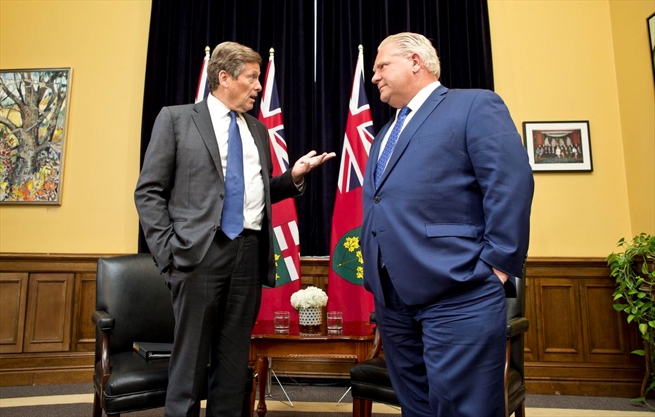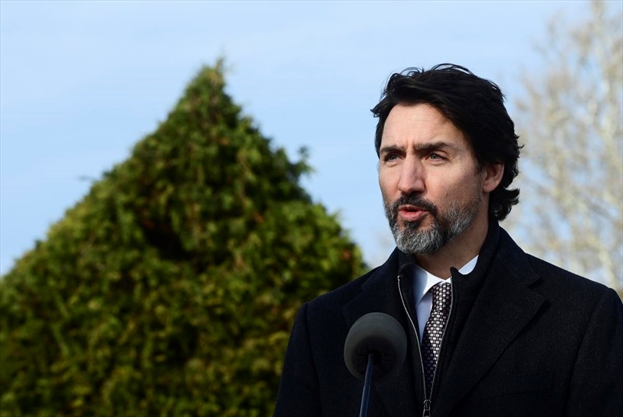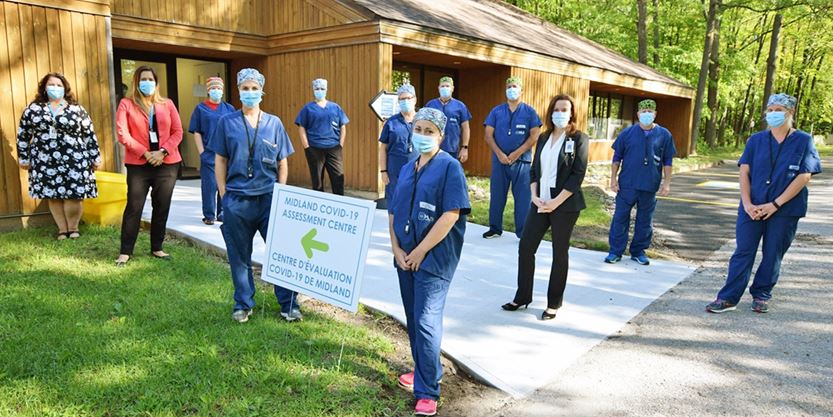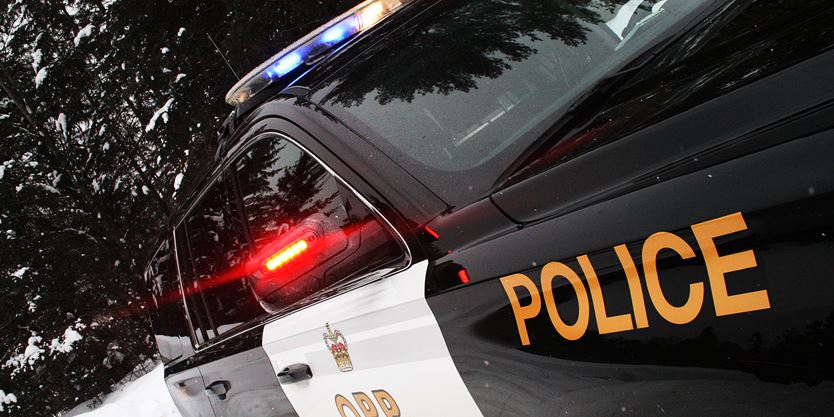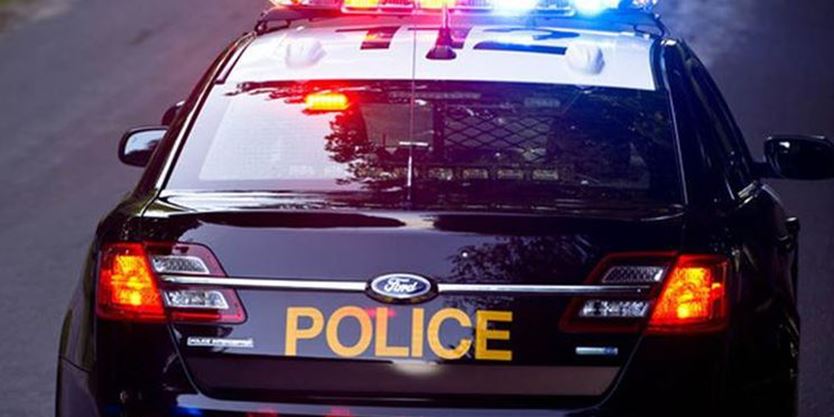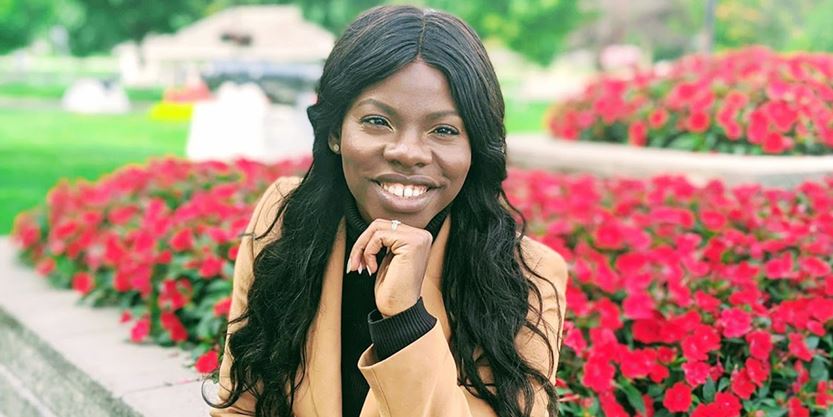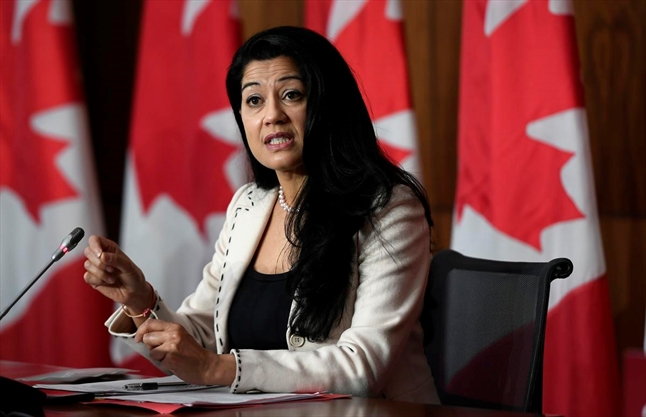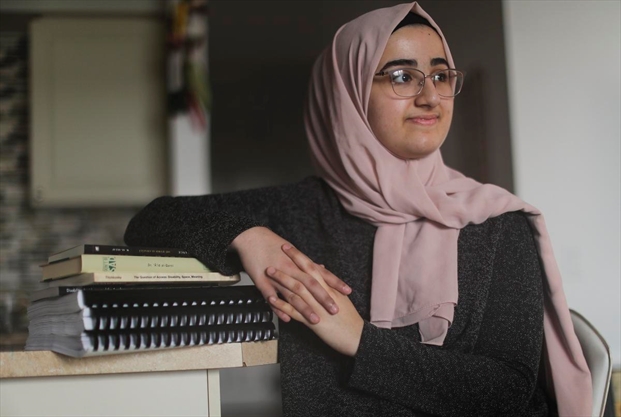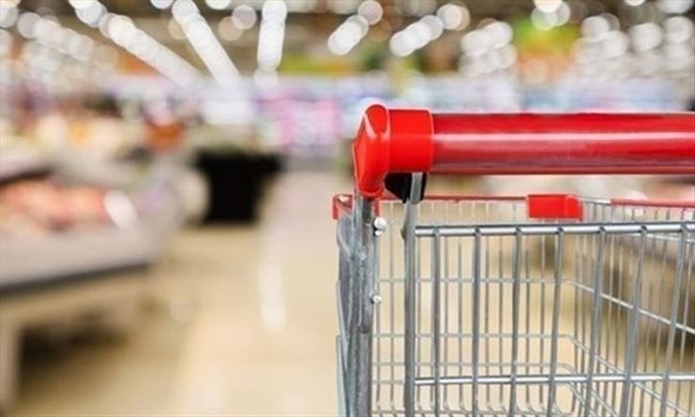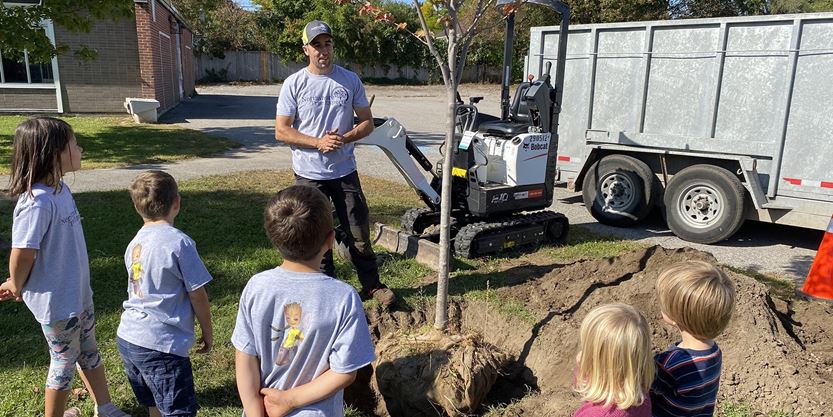When Amna Alyass decided to apply to university, her father and sister took her aside and, with earnest faces, explained why they felt she was setting herself up for failure.
“Slow down,” Alyass, 17, recalls being told last December. “Take another year. Or at least apply to an easier program at a college.”
The words came from a place of protective love for a daughter who has faced more adversity than most, including moving from school to school and fending off bullies who mocked her for wearing a hearing aid and a hijab.

But rather than heed their advice, she plowed through and prevailed, getting into all four universities she applied to — and, after just three years of high school, not four. Today, Alyass is proud to be a first-year student in Ryerson University’s politics and governance program.
“I just didn’t give up,” she says. “I told myself that I am going to finish what I started and anyway, once someone tells me I can’t do something, I need to prove that I can.”

Alyass is a picture of resilience and her story is, perhaps, one of hope for millions of students across the province who are in the midst of a school year like no other.
Last March, forced the sudden shutdown of schools, and when classes resumed weeks later, students and teachers were forced to pivot to online learning with little preparation and no training. The start of the wasn’t much better as boards scrambled to make in-person schools safe and create virtual schools from scratch.
Between delayed starts, shuffling of classes, absent teachers, and, more and more often, the shuttering of classrooms due to COVID-19 outbreaks, it is not surprising some parents and students have wondered, as 2020 comes to a close, whether all these disrupted days of education are adding up to a lost year.
Alyass, a teenager who has overcome much more than — and come out the other end, not only hale and whole, but better off — is an example, along with an untold number of students around the world who have faced educational hurdles in non-pandemic times, whether due to a lack of access to formal schooling or having to battle cancer or to flee war as refugees.
And despite the United Nations Secretary General having warned that an entire generation over fallout from the pandemic — and, there is no research to help us predict specifically what can happen to children who miss a year of school — there is a wealth of evidence from lived experience that shows people can thrive in the face of hardship.
And, in fact, that they can’t become resilient without it.
“Let’s face it,” Toronto behavioural therapist Katy Albert says. “Life is a struggle.”
While it’s difficult, as parents and educators, to see our kids suffer — and we often feel it’s our job to remove whatever barriers are in their way, she says, to do that would invalidate their experience and deprive them of essential skills for the future.
Of course, she says, there is a difference between adversity and trauma. Child abuse, horrible accidents, extreme poverty, violence — those are things that create chronic, traumatic stress that “we don’t want kids to go through,” Albert says, but “we can’t make the world void of stress. Rather, we need to equip our children with coping strategies.”
In situations we can’t control, like a pandemic, she says, the first thing we need to do is allow children to experience whatever the situation brings, and “normalize and validate” those feelings, telling them it’s OK to be scared, sad, bored or upset over missing out. “We need to tell them that they can have some adversity and still enjoy what’s good,” she says, “to still find meaning in things; still treat people well and still do well.”
We’re not all “dandelions,” whose seeds can be dropped anywhere, anytime and from any height, and still grow big, she says. Some of us are fragile and need to be handled with care, given more time and support to acquire the grit and determination to overcome hardship — and do our best.
That describes Alyass.
At age two, her parents left her behind in Iraq with relatives to take her newborn sister to the United States for emergency medical treatment. When her parents finally sent for her, nearly three years later in 2007, the shy girl was devastated once again, this time at having to leave her grandparents, caregivers she had grown to love, and at having to acclimatize to a whole new way of life. That included yet another new baby sister. “It was really hard for me,” Alyass says. “I cried every night.”
By this time, her parents had settled in Toronto.
For the next few years, things didn’t get much better.
Moving from school to school as her parents changed jobs and homes, she never felt like she fit in. And as the only brown-skinned student among a sea of white faces at her Etobicoke elementary school, she struggled to make friends. It didn’t help that she was in French Immersion and spoke only Arabic. And even though, getting a hearing aid in Grade 2, was thrilling — she could hear well for the first time — it also made her a target for bullies. Wearing a hijab starting in Grade 4, gave the bullies yet another reason to poke fun. “I was so different,” she says, today, “they didn’t know what to make of me.”
At first, she says, she was crushed, and would come home crying. But over time she developed strategies to cope. She escaped in books, watched movies to learn English and later in life, took up volunteering at a hearing aid clinic, which, she says, helped her find comfort and friendship. Switching to homeschooling in Grade 6, she says, was also a boon, allowing her to learn at her own pace and curb her anxiety.
But, Alyass says, she wouldn’t have figured out how to keep going all those times without her mom’s support — and advocacy — and her “yes.” Even if she came to her mom with ideas or desires that seemed out of her league or impossible to achieve, she always found an ally. No matter what, she says, her mother would always give her that first “yes.”
And she did once again in September 2019 when Alyass came asking.
Earlier that month, Alyass had discovered she didn’t have enough credits to graduate. She had been mourning the death of her grandfather and didn’t notice that she hadn’t planned properly for what was supposed to be her last year in high school. As a homeschooler she didn’t have the benefit of regular advice from teachers and guidance counsellors — so no one caught her mistake early enough to fix it.
Alyass was devastated, but refused to give up, throwing herself into research and coming up with a plan to meet her goal. It involved convincing an alternative high school to let her take seven advanced courses — all without the prerequisites — and then, to ace them.
Rather than laugh and tell her daughter it sounded impossible, Alyass’ mom smiled and said, “What do you have to lose? Just go and chase that ‘yes’.”
By the time she got into school, it was already halfway through the first semester. She tried to catch up. Her marks were initially poor and her father could see she was struggling. While supportive, Alyass says, like any doting father, hers was only trying to shield the daughter he loved from getting hurt that day last December. And so was her sister.
“I knew that,” she says. “But it was still a lot of extra pressure.”
Nonetheless, she held onto her mom’s yes — pulled her marks up and got into university, carving not only her own path, but beating the odds.
“It was surreal,” she says. “I was like — wait, there must be a mistake.”
There wasn’t. And, these days, navigating the demands of university during a pandemic, Alyass is calm. If ever things get hard, she says, she just reminds herself about what she accomplished last year. “If I got through that,” she says, “I can certainly get through this.”
Like Alyass, Duom Maper, 24, is someone who refuses to take no for an answer.
Her entire life had been shaped in Kakuma Refugee Camp in Kenya, home to almost 200,000 refugees from East Africa. It’s where her parents, originally from war-torn South Sudan, had met, and where she was born.
Life at Kakuma was harsh. The weather was extreme, and the camp’s brittle homes were hardly enough to shield its residents. Drinking water was only available five kilometres away and food was rationed.
Education was also difficult for Maper to access. Going to high school meant leaving her family and travelling nine hours south to a boarding school, paid for in part through church fundraising, and where she’d live for the school year.
But even with working hard and finishing high school in 2015, higher education was never a guarantee. “My parents didn’t have money to take me through university,” she says.
Through others at the camp, she heard about the World University Service of Canada student refugee program and wasted no time in applying. It took three attempts before she was given the nod to come to Canada — applications she filed through crushing tears and resignation, and an impending deadline of her 25th birthday, after which she would be ineligible for the program.
“I kept applying because I knew it was my only hope of going to school,” Maper says.
She now studies biomedicine at Trent University and is in her second year and is hoping to eventually become a nurse.
Maper remains resilient, a quality she credits to her relentless optimism, fuelled by life lessons passed down by her mother and the responsibility of being the eldest daughter.
“My mom made it very clear that (education) was going to be a way for me to achieve as much as I could,” Maper says, adding her mother was with her every step of the way; from every triumphant report card to every heartbreaking rejection.
And despite being some 11,000 kilometres away from her pillar of strength, Maper remains determined to build a better life for herself and her family who supported her throughout the years.
“I want them to have a better life,” she says.
This is the second of a two-part series about how students are coping in a year like no other.
Read part 1:
Michele Henry is a Toronto-based reporter for the Star, writing health and education stories. Follow her on Twitter:
Nadine Yousif is a Toronto-based reporter for the Star covering mental health. Her reporting is funded by the Canadian government through its Local Journalism Initiative. Follow her on Twitter:
Noor Javed is a Toronto-based reporter covering current affairs in the York region for the Star. Follow her on Twitter:

